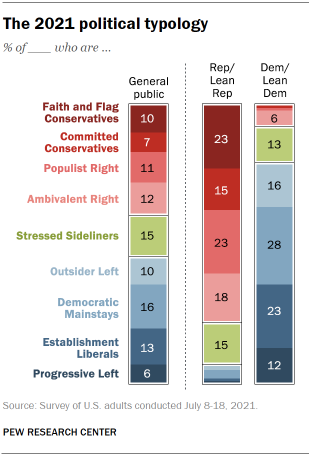Eagle367 said:
They went more the pop quiz route rather than the actual nitty and gritty. I am for "big" government as long as the government is serving the people and not causing wars. The "big" government argument is stupid to begin with because it matters what the government does, not how "big" or "small" it is.
|
Almost none of the questions are worded the way I would word them and the one you cite, the very first question of the quiz, is a perfect example. Nobody on the left actually cares about "the size of government". That's a conservative, right wing framing of the matter that's intended to make public welfare sound like a scary, Orwellian thing. What those of us on the left actually care about is what governments do and how well they do those things. Of course though, I also understand what is meant by the question and answered according to that knowledge. The same principle applies to lots of the questions.
What I like about the quiz more the questionnaire itself, which often SEEMS silly itself on the surface level, is the believability of its results. I can fully believe the categorizations everyone has gotten so far. It's not shocking to me that we get lots of "progressive left" and even more "ambivalent right" (the libertarian category) here when you consider that like the hardcore gamer demographic on this forum, if not in general, is composed disproportionately of relatively young, affluent, highly-educated white men from North America and western Europe. That is indeed the general range of debate I'd expect from that demographic. Outside of the color of my skin, there's very little overlap between those characteristics and my own, which might help explain why my result contrasts with the dominant sorts of opinions.
I posted this quiz over on another forum I go to that's dominated by older Americans (as in mostly people over the age of 60) rich enough to flip out over the prospect of an estate tax hike and there the overwhelmingly dominant result so far is "committed conservative", which, as you can see at the link, as basically the Reaganist neocon category. That result for them also makes perfect sense when you consider the demography of this group described at the bottom of the article. It also aligns with their relationship to Trump, which has been a supportive one, but also one of...you know, not volunteering the subject.
Last edited by Jaicee - on 24 November 2021





























 vs
vs  ?
?
























